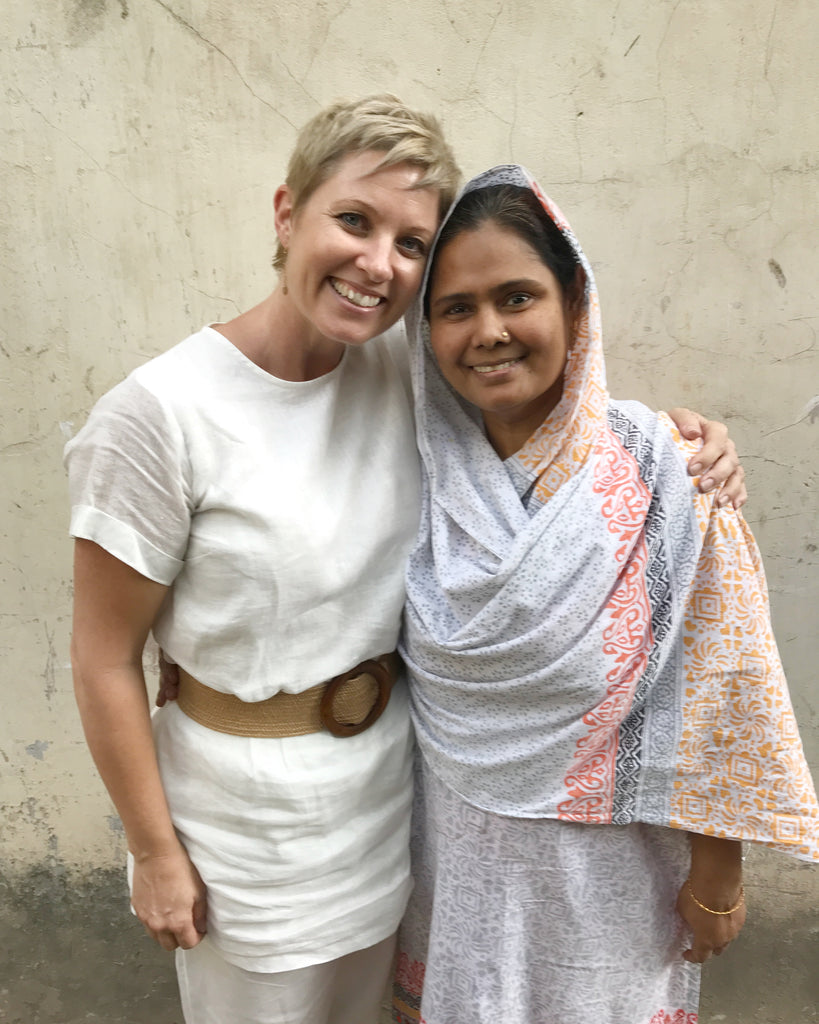Artist Profile | The Dharma Door
We would like to introduce you to a very special company, The Dharma Door. We have been following their journey for some time now, being so inspired by the work they do with artisans in Bangladesh and other regions. We are extremely selective in who we partner with, in our shop. They must meet certain criteria ethically speaking. Are they a single artisan trying to support their life by a craft? A sustainable company, ensuring all products are created by the hands of people being paid a fair wage and treated with dignity. Do they take into account how the environment is affected by what they do? Are natural materials being used in a sustainable way, and is the product useful and beautiful. The Dharma Door is guided by all these values. We were beyond thrilled when they agreed to us becoming a stockist of theirs. We have immense respect for the work they do.
In this interview, Shannon, the wife, of the husband and wife duo ( Shannon & Mick Sheedy) speaks with us about how The Dharma Door got its start, why fair trade partnerships have the ability to transform lives and why she believes it's so important to be intentional about how and where we spend our money. We hope you are enriched and encouraged by their story as we were and that this will help shed some more light on the impact our purchasing has.
Can you share a little about your background?
I created The Dharma Door after spending a year traveling in India and Nepal with my husband, Mick, who now works in the business with me. We lived and volunteered in a Tibetan refugee community and their situation motivated me to design The Dharma Door’s first product when we returned to Australia in 2004 – the Book Bag was a reinterpretation of the culture’s traditional fabric wrap for scriptures. Prior to that, I worked in sales and education. While I don’t have any formal design training, I’ve always been creative and interested in design. And I’m still taken by surprise at moments when I realize how much my earlier working life, which was seemingly unrelated, has shaped my skills and approach in business.
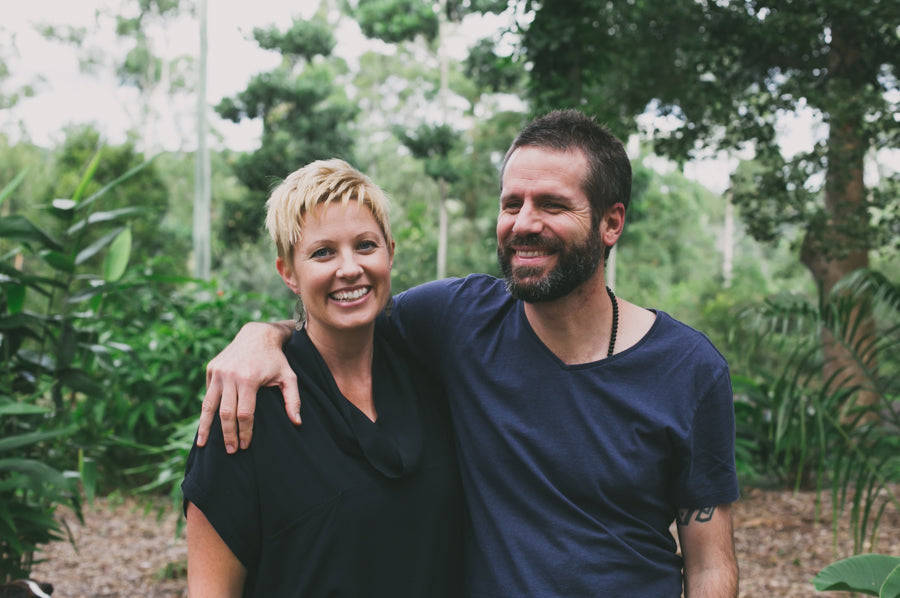
Why do you do what you do?
We believe that true Fair Trade partnerships have the power to transform lives. They allow artisans to use their own skills and to earn fair wages for those skills, and ultimately, to provide financial security for themselves and their families. The female artisans who make our products hail from the poorest, most disadvantaged communities in Bangladesh and in our view, this is the best way to work towards ending the cycle of poverty. The Dharma Door's focus is on providing consistent, ongoing orders, and building a strong business, which enables artisans and artisan communities to experience the benefits of stable employment. Through trading regularly and over a long period of time, the artisans are able to make significant and meaningful changes in their lives. These changes include education for their children, respect within their community, better marital and family relations, improved housing and health and the ability to plan for their future through micro-credit and savings.
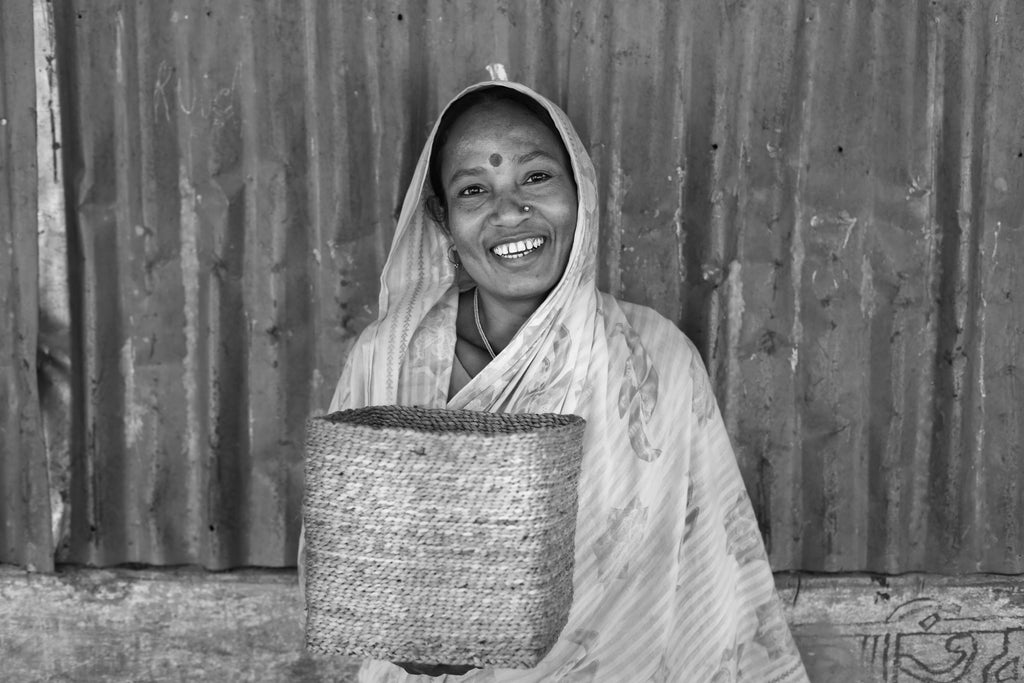
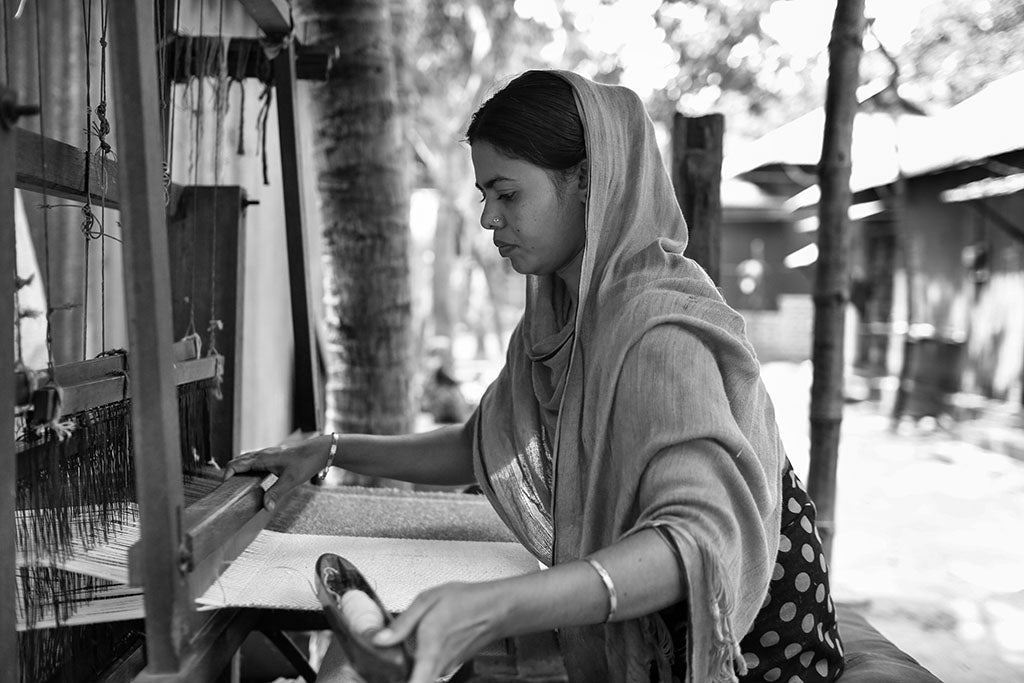
Where does your creativity and passion for design come from?
I’m constantly inspired by the artisans we work with. The most enjoyable part of our visits to Bangladesh is going out into the villages where our artisans work from home or small production centres. This gives me an opportunity to see them practicing their crafts up close and to learn more about their skills, raw materials, and their lives via a translator. Spending time in their villages allows me a peek into our artisan’s lives and I’ll often get a spark for an idea from something simple that I observe - it might be a woven mat that they’re sitting on to make one our jute baskets or a thatched roof.Nothing makes me happier than seeing a design come to life from the humble hands of the artisans and into a person’s home or a luxury hotel on the other side of the world. It’s incredibly rewarding and drives my passion for what we do.
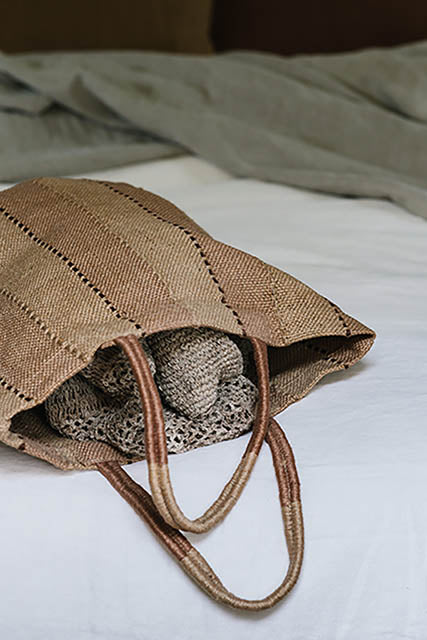
Can you describe the moment or time when you knew that working with these developing regions / bringing exposure to their craft was your calling?
Soon after starting The Dharma Door, I identified five key ways to achieve our goal - good product design, attention to quality, placing regular orders over the long term, paying fair prices and finding customers who appreciate the pieces. Through this approach, I have witnessed genuinely positive change in the artisan communities where we have worked for over a decade. This continues to be my personal motivation and the guiding principles in all of the product and business decisions that we make.
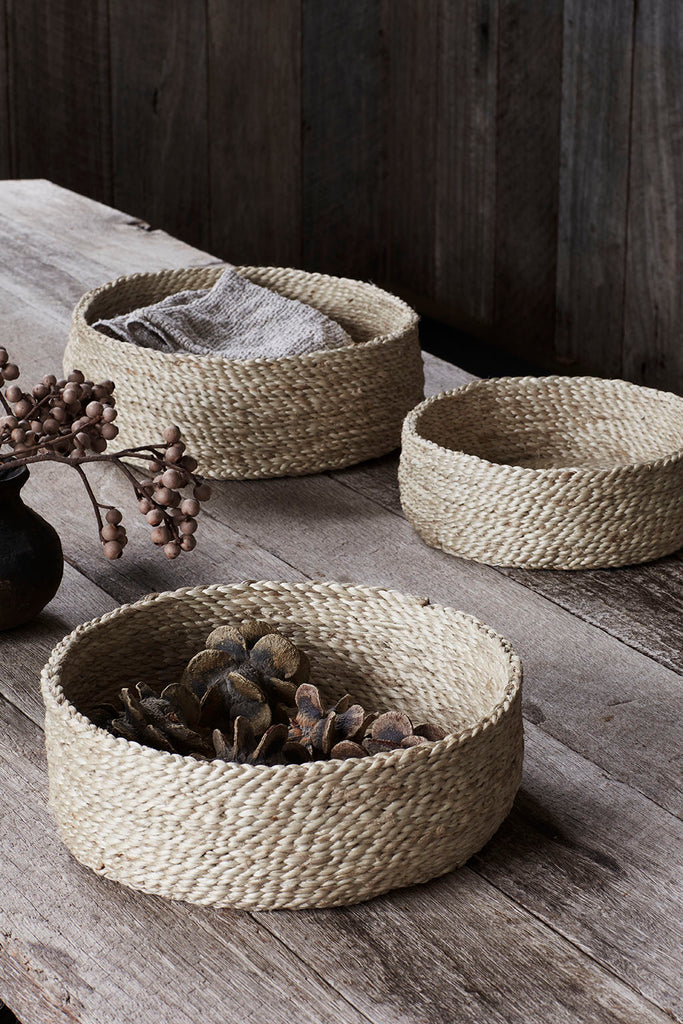
Please share why it is so important to be intentional and ethical with how we spend our money.
It’s easy to be seduced by beautiful, convenient or inexpensive things and in the process, to not consider the broader impacts of our purchases. It can also seem overwhelming when there are so many things to consider - ethical production, the environment, supporting local, buying original designs over copies and so on - and all the complex layers that come with those considerations. If we stop and think before we buy, asking ourselves and the seller some simple questions - Who made this? Were they paid fairly? How was the environment impacted? - and start choosing better options for the things we want to buy, then we might start to see greater changes in human equality and the environment on a global scale. By making more considered and intentional purchases, we are demonstrating our commitment to wanting to change how the world is currently structured. And you might be significantly changing the life of the person who designed or made your piece!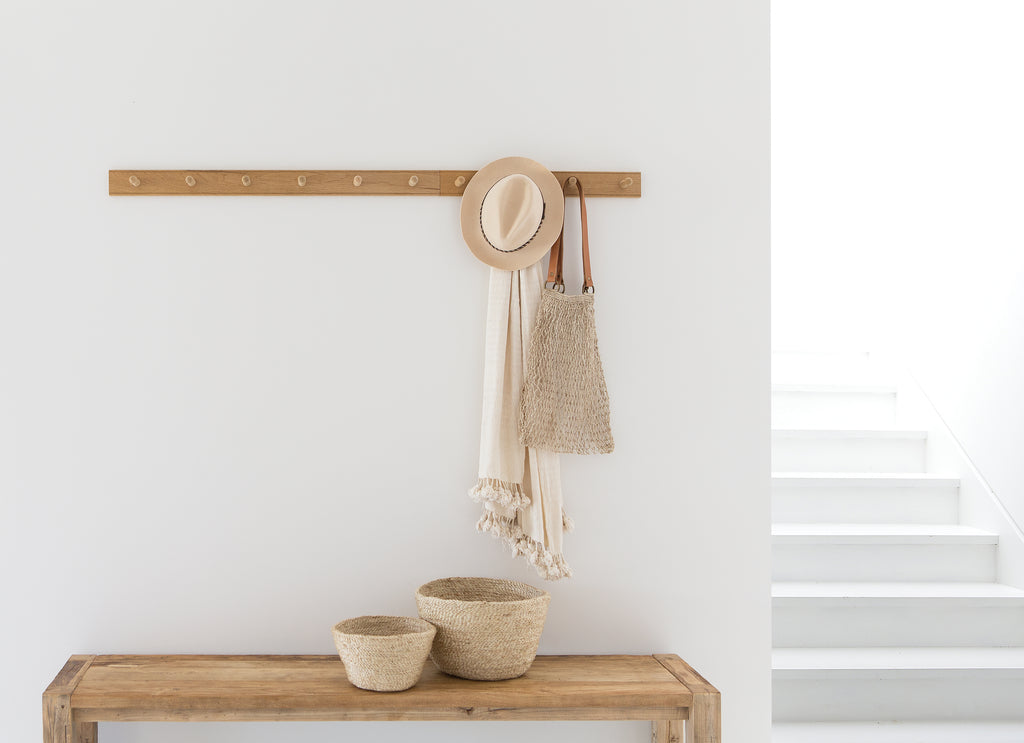
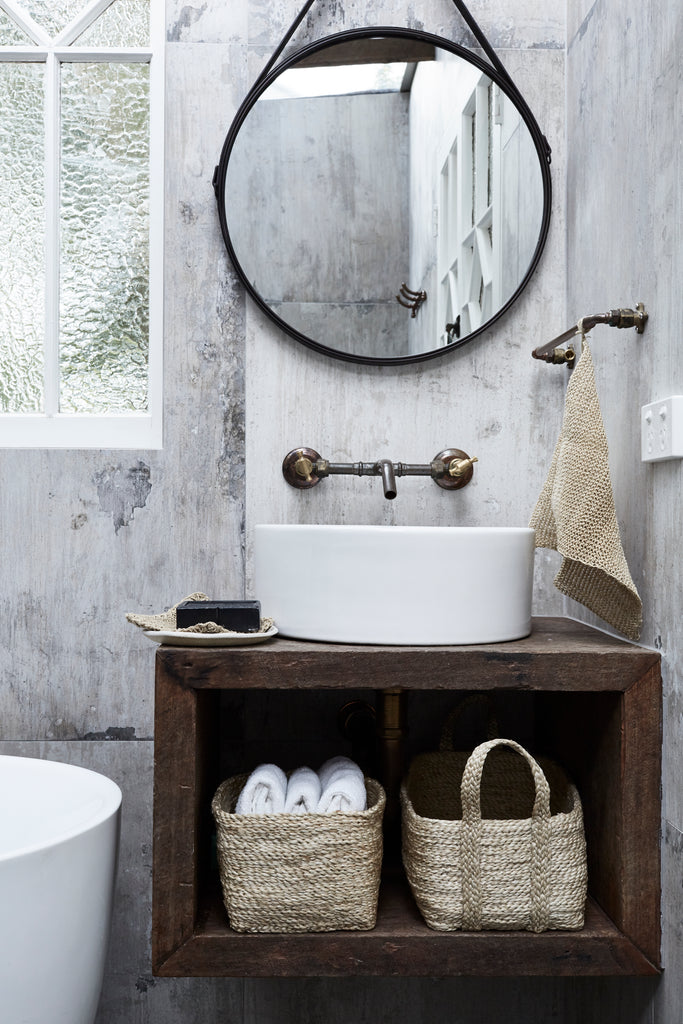
Do you have any advice on how to be more intentional about how we decorate our homes?
Choose products and designs that are timeless, of high quality and made to last rather than simply following trends. This will be better for the environment, your hip pocket and longevity. Go one step further and seek out ethically produced home decor pieces. Many of these items are made by traditional artisans and can introduce beautiful character and texture into your home. And the fact that the artisan was paid fairly means you can feel good about it too.Natural fibres, quality, and functional design are the essence of The Dharma Door collection. We consciously design products that tick all the right boxes so we can be sure that every piece is a well-considered, sustainable and affordable option. Equally, aesthetics are important to us and each piece in our collection is designed to add warmth and textural beauty to any space. Our wall hangings and baskets are all about introducing handcrafted woven fibres into home decor to complement other artwork and furniture.
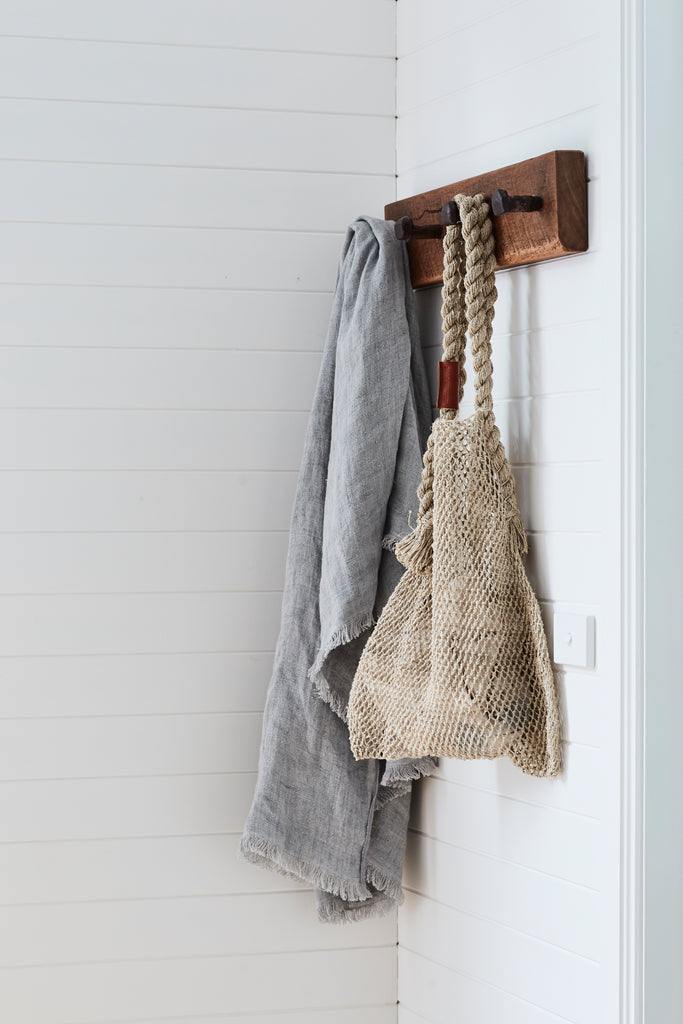
What role, in general, do you think artists/craftsmen play in society? What are your thoughts on being an artist in today's world?
Speaking from the perspective of the artisans that we work with, there are some key roles that they play in their communities. They are the custodians of craft knowledge and through practicing their crafts they are keeping traditions alive, which ideally will be passed on to future generations. That’s a big responsibility and when designing our products I do everything I can to support that. For example, our Boda Baskets and Uttam Totes are made with components from three different artisan groups - the outer fabric is naturally-dyed and handwoven by remote tribal women on backstrap looms, the lining cotton fabric is handwoven on wooden looms by khadi artisans and the jute handles are made by another group of women using traditional rope-making techniques.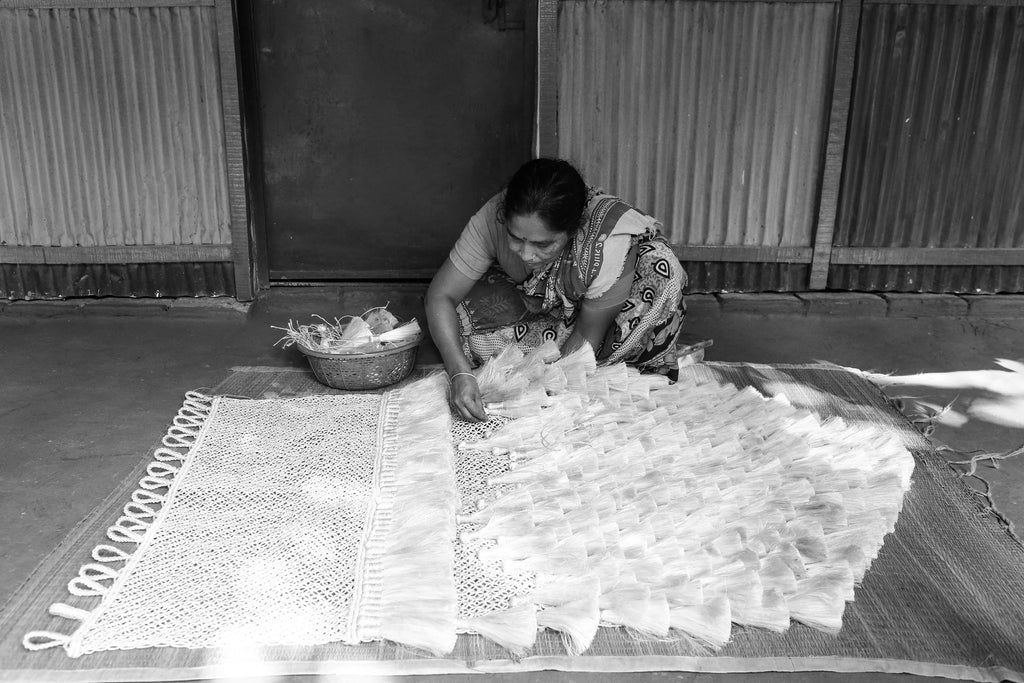
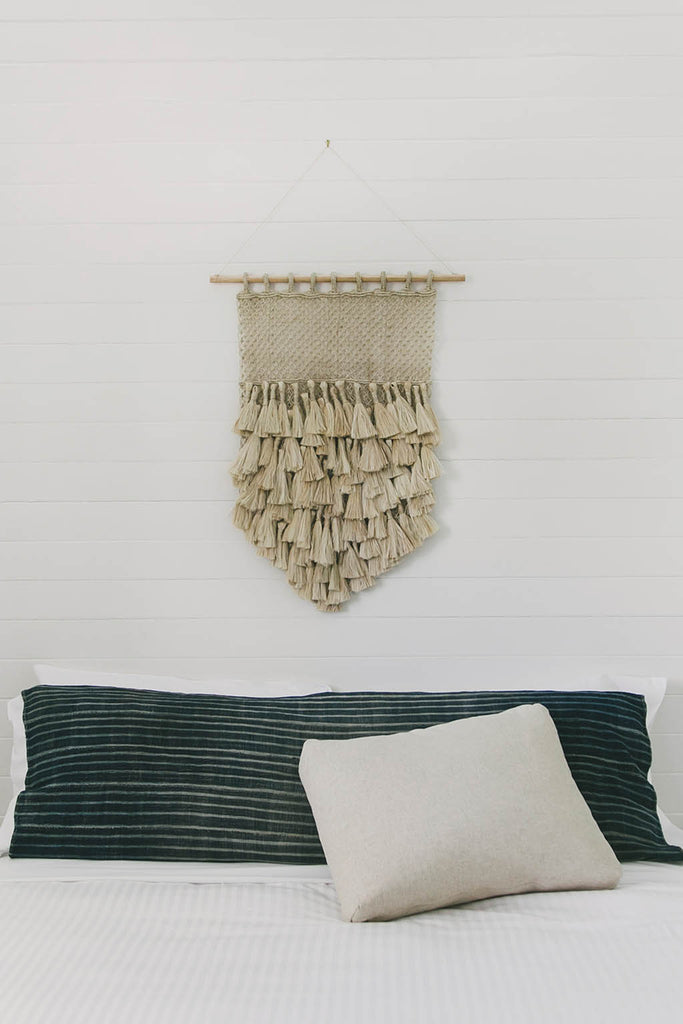
What’s your favorite artwork? Why?
Nature. I’m constantly fossicking, collecting and curating things from nature. We have huge palm fronds hanging on our walls, fresh foliage from our garden in vases, driftwood, shells, feathers and more always displayed around our home. I love to mix in handmade woven texture and textiles, pottery and carved wood. We have a very simple palette and earthy aesthetic in our home and that translates across to The Dharma Door collection.
In a more formal sense of the word artwork, we have a treasured piece that Mick’s grandad - an amateur artist - painted in the ’80s. It’s a scene of sugar cane burning during harvest so it also depicts a piece of history and holds memories from Mick’s childhood.
What kind of daily routines or rituals do you have?
The morning is key for us! Each day starts at 6 am with a cup of tea in bed with Mick, while I check social media and respond to messages and he reads the news. We walk our boxer dog Maya along our country road every morning. She’s a stickler for routine and it’s a great way for us all to start the day - the walk is sometimes a quiet meditation or it might act as a meeting time for Mick and I to discuss what we’ll both be working on that day. Mick then meditates and I’ll often go for a run. We both try to be in the office - a 200-metre walk through rainforest on our rural property - by 9am. From there the day unfolds in different ways, depending on what we have on. The key to how we choose to work is flexibility, so we know we can run errands or make personal appointments during the day and make up the hours at another time if we need or want to.
What’s your favorite thing that you created?
The Dharma Door and everything that has come with this business. It has been a wild ride of ups and downs over 15 years but I wouldn’t change a thing. It is stimulating on so many levels - creatively, mentally and through the people we’re fortunate to meet and work with. I can honestly say I’ve never had a day in this business where I haven’t felt like I’m creating or learning something new. It is truly fulfilling to know we’re meeting our goals of supporting artisans out of poverty every day.
What do you try to communicate through your art/ craft?I see my role as being a medium for bringing the crafts of our talented artisans to a broader market. We travel to Bangladesh annually to visit the artisans in their communities and our designs are often inspired by what we see in their daily lives. For example, our Tala and Amua wall hangings were inspired by the palm thatching and matting that we see in and around the artisans’ homes. We observe the skills that are already being practiced and the local raw materials that are available there.
With this knowledge, we create contemporary and functional designs in collaboration with our artisan partners. We’re mindful of not imposing our design ideas on them - we want the artisans’ traditional techniques and talents to shine. The best way we can do that is by working with what they are already doing, rather than reinventing the wheel. Ultimately this enables artisans to feel proud and rewarded for their skills. There’s so much beauty and authenticity to be experienced in partnering with them at this level.
We always choose natural fibres like jute, hemp, palm leaves, and grasses and natural dyes. That means our products are healthy for the people who choose to have them in their homes and also for the artisans when they are making them. The fibres are grown locally in the regions where the artisans live, so working with them is like second nature to the artisans. It also has wonderful flow-on economic benefits for local farming communities who grow and harvest the materials.
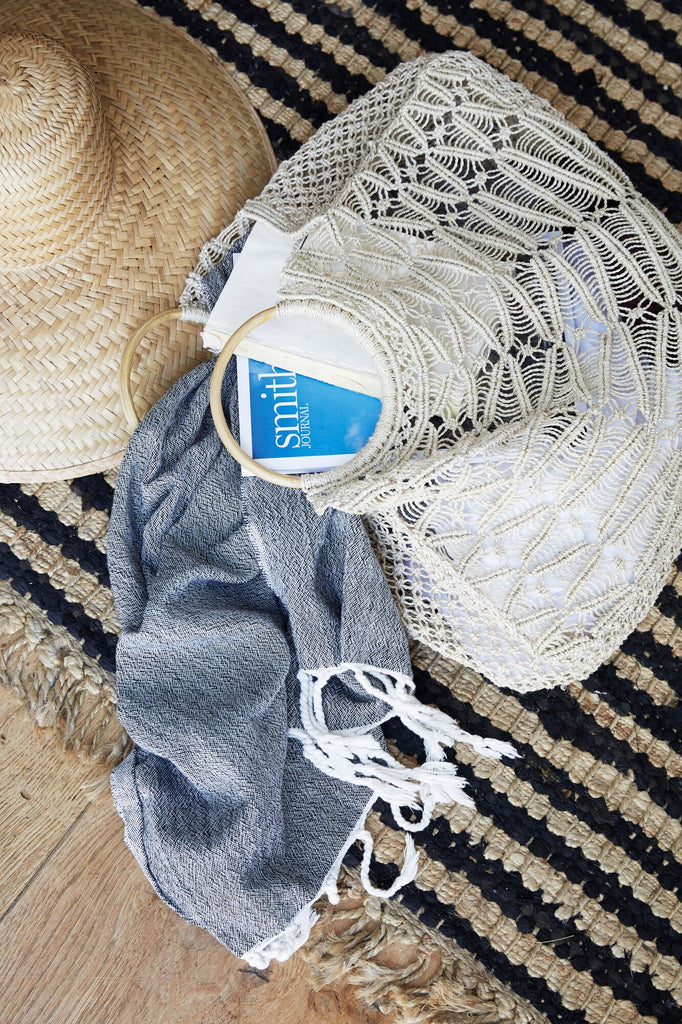
Is there a creative medium you would like to pursue but have not yet tried?
Where do I start?! I love painting, pottery, and calligraphy but don’t make the time to pursue them. I also have a passion for natural dyeing and dream of putting everything that I learnt in a course - with master natural dyer Aboubakar Fofana - few years ago into practice. The reality at the moment is that The Dharma Door is my passion and completely consumes me. I tend to pour my creative energy into learning about the crafts and materials of the artisans we work with and those who I would love to work with. I’m off to India tomorrow and can’t wait to visit some artisans who are working with materials and skills that I’m not familiar with.
What’s the best piece of advice you have ever been given?
Honour your own path and don’t be distracted by what everyone else is doing.
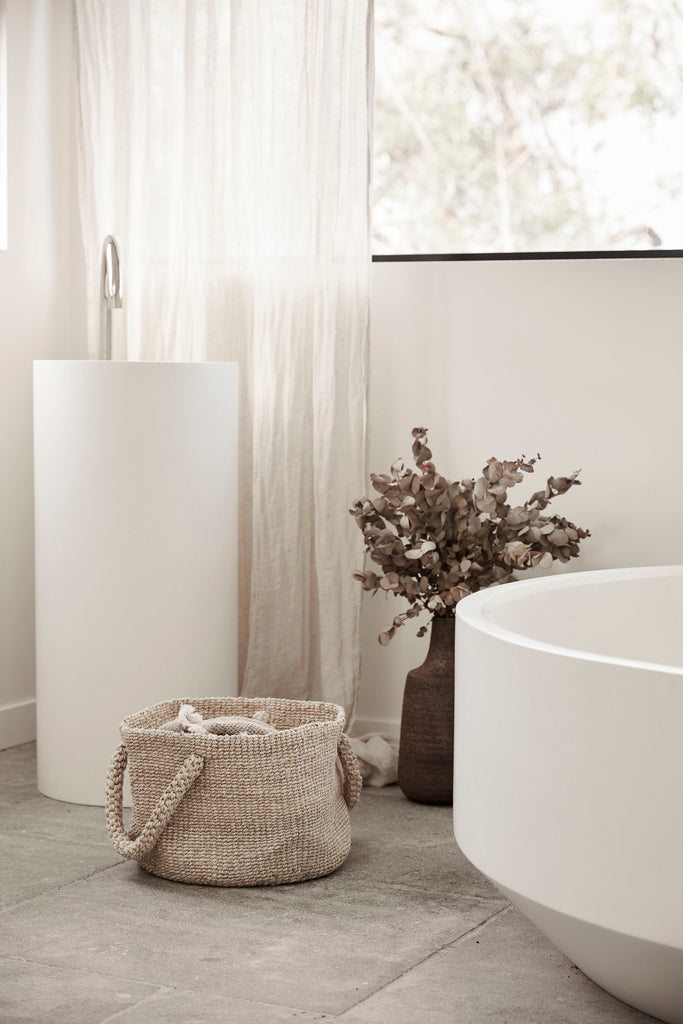
photo credits | styled shots: Jessie Prince, artisan shots: The Dharma Door
Hemp string market bags available in our shop.

